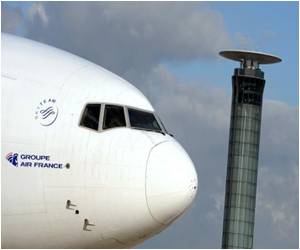
Both facilities are bursting at the seams amid a tourism boom in trendy Berlin and a sustained economic upturn in Germany.
So chaotic was the cancellation of the grand opening due to fundamental technical problems that the invitations for a giant party had already been sent out in their thousands.
Since then, the start of operations has been pushed back again and again, while the giant shell of a building now stands on the city's southeastern outskirts as a growing money pit.
Red-faced officials in Berlin and neighbouring state Brandenburg, which share responsibility for the site, have refused to commit to a new opening date for fear of further embarrassment.
But their cagey stance has not spared them ridicule. Satire programme Heute Show on national public broadcaster ZDF has practically dedicated a segment to the spiralling fiasco.
Advertisement
Another joke has become a top-selling postcard featuring a picture of former East German leader Walter Ulbricht and his notorious pledge a few months before the Berlin Wall went up in 1961: "No one has any intention of building a wall". But "wall" has been replaced by "airport".
Advertisement
Beyond the bitter gags, Germany has been horrified to see its global reputation for efficiency and engineering prowess tarnished and one of its biggest building sites become a laughing stock.
"German engineers are still highly respected but the rest of the world has taken note of the disaster at Berlin airport -- in China people talk to you about BER," said Peter Englisch of business services giant EY, formerly Ernst & Young, during a recent presentation on Germany's attractiveness as a place to do business.
"We have made major progress," insisted BER's spokesman Ralf Kunkel.
Kunkel answers to Hartmut Mehdorn, the former head of German rail company Deutsche Bahn and airline Air Berlin, who has been enlisted to turn things around.
The first goal is not even to set an opening date but simply to say when a date might be fixed.
"By the end of the year," promises Kunkel. "We want to avoid giving a false deadline once again, we've done that enough in the past."
The main problem remains the fire safety system.
"The rules in this area have been reinforced in recent years in Germany, particularly after the fire at Duesseldorf airport," Kunkel said, referring to a catastrophe in western Germany in 1996 in which 17 people died.
"Since then, it's become a complex issue that, obviously, was underestimated," he told AFP.
A progress report in late April found major faults with BER's smoke extraction system -- a problem at the core of the Duesseldorf disaster.
The plan is now to break the system into three parts to make it more manageable and efficient.
But work has not even begun and impatience is growing. Some officials, seemingly at the end of their tether, have put forward the radical idea of razing the existing building and starting from scratch.
Each month, the site financed by the federal government, the city-state of Berlin and the Brandenburg region costs taxpayers 17 million euros ($23 million) in maintenance fees.
That comes on top of a budget now estimated to have reached five billion euros, about three times more than the 1.7 billion euros originally earmarked.
And that figure only covers the building itself, not the vast indirect costs linked to it.
A "ghost train", for example, connecting the city with the airport terminal must run once a day -- without passengers -- to prevent the rails from rusting and the tunnel walls from gathering mould. Monthly cost? Two million euros.
Just when worse news didn't seem possible, it emerged last week that the new technical operations chief of the airport, who started at the same time as Mehdorn, is now the target of a criminal probe for alleged corruption.
Kunkel, the spokesman, who has worked for BER since construction began, admits his job is rarely easy.
"It can be exhausting to see that things aren't going more quickly," he said. "But basically it's still a pleasure to work here."
Source-AFP









